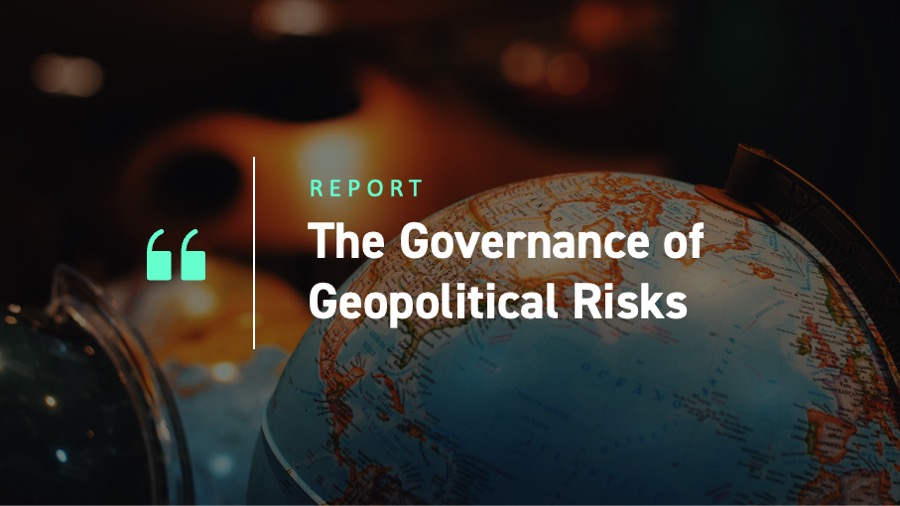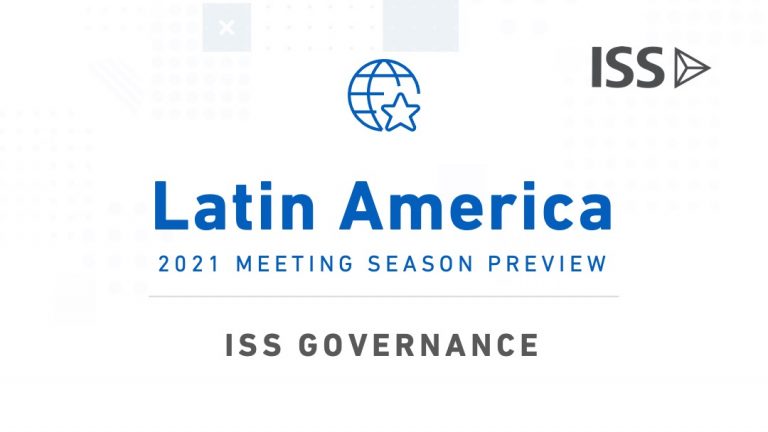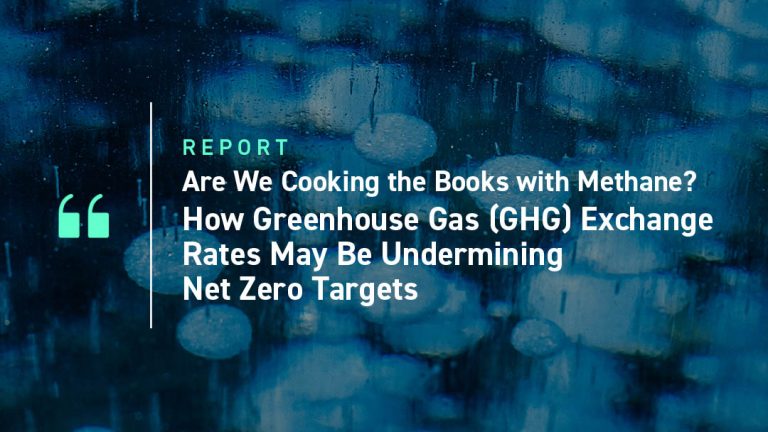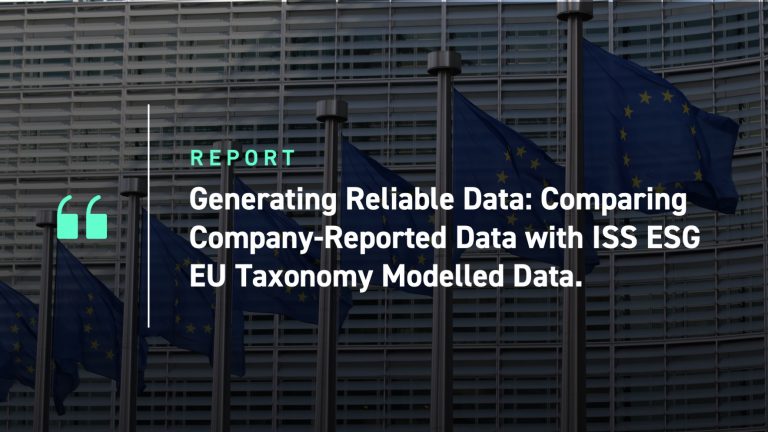In recent years, companies have come under increased pressure from institutional investors and governance bodies on a number of key issues that can be generically gathered under the term of ‘risk’. Although traditionally most companies have long contended with many immediate or direct risks, there is a growing demand for companies to attempt to mitigate fallout from a number of disparate environmental and social externalities that can often fall outside the narrow confines of day-to-day business operations.
The most obvious of these is climate risk, with companies seeing a gradual escalation of regulation, expectations and investor scrutiny in relation to how they intend to transition to net zero carbon emissions within the timeframes set out by the 2015 Paris Agreement. Other risks in recent years have also emerged as important topics of discussion in their own right in response to geostrategic and macroeconomic events, as well as technological developments. These include risks relating to cyber security, supply chain protection and reputational damage, just to mention a few.
However, one risk that has arguably outshone others in recent years is the threat posed by geopolitical risk. The international political and economic environment has become increasingly volatile, with the conflict in Ukraine, the revival of instability in the Middle East, and ongoing geostrategic tensions between the US and China representing recent examples geopolitical flashpoints. This has been interpreted in many quarters as the coming to an end of the relatively peaceful decades that followed the collapse of the Soviet Union and the instatement of the US as the most significant power in world affairs. For many companies worldwide, the global volatility is especially alarming, given how integrated global trade, finance and supply chains have become over the past few decades. Moreover, for businesses that operate internationally it has become exponentially more difficult for them to avoid economic fallout from conflict hotspots.
One solution that has been considered as a viable alternative to a globalised free-trade world by many institutional bodies, including the US government, is ‘friend-shoring’. This concept envisions the possibility of companies shifting their supply chains away from areas of geopolitical tension in favour of more neutral, stable and/or ideologically complementary countries.
However, theory is one thing, practice is another. Given the intertwined nature of global trade, extricating wholesale from their current suppliers would be a prohibitively expensive exercise for many businesses. This is without mentioning those companies that are inextricably tied to particular geographical areas (for instance, mining and other extractive companies), or those that require products or commodities from politically unstable regions for their operations to function. Moreover, many companies have long balanced the threats posed by geopolitical risk against regional advantages, such as local expertise, cheaper production costs/wages or the need to enter new lucrative markets, and are unlikely to change tack now despite the increased risk.
A number of institutional investors have weighed in on the topic of geopolitical risk over the past few years. For example, State Street Global Advisors (“SSGA”) published during April 2022 a ‘Framework for Stewardship in the Context of Geopolitical Risk Arising from Unexpected Conflict Between or Among Nations’. This has since been superseded by its ‘Guidance on Managing Geopolitical Risk’, published in April 2023. According to the guidance, SSGA now expects the companies it invests in to manage and mitigate risks that relate to operating in impacted markets, including financial, sanctions, regulatory and/or reputational risks, as well as to strengthen board oversight and disclosures in relation to these efforts. More recently, in November 2023 BlackRock warned that the fractious state of current geopolitics, alongside ageing populations and the costs associated with the energy transition, are all pushing up long-term borrowing costs.
Nonetheless, geopolitical risk is also creating opportunities for some companies. In late October 2023, it was reported that Goldman Sachs is to set up its own geopolitical risk advisory business in response to growing demand from companies for advice on how to successfully navigate an increasingly volatile international environment, joining a number of other advisors already operating in this area.
Managing geopolitical risk
From increased global instability has emerged growing demand at board level for geopolitical expertise. Unsurprisingly, many guidance documents and opinion papers on geopolitical risk were published in the months immediately following Russia’s invasion of Ukraine. On 24 February 2022, as military vehicles crossed the Ukraine border, The Risk Coalition published a blog post called Geopolitics, corporate governance and ESG, which stated the following:
“Company boards and management teams often pay scant attention to geopolitical issues, at best drawing on [an] occasional briefing or seeing geopolitics through the prism of a single impact such as supply chain or cyber disruption. But as geopolitical conditions become more uncertain, impacts are widening, undermining macroeconomic and investment conditions, and often generating second and third order strategic, financial, operational, legal and reputational risk impacts – even for firms not in geopolitically sensitive industry sectors.
How can company boards ensure their organisation remains resilient amidst increasingly turbulent geopolitical conditions? Who in the organisation should have the leadership and oversight responsibilities in this area? What internal capabilities do businesses need to anticipate the wider impacts of geopolitical instability, including on ESG deliberations, and how should these be deployed?”
The Risk Coalition is not the only one to have noticed that some companies in recent years have found themselves ill-equipped to address emerging geopolitical threats in the current climate, and to consider that a few paragraphs on geopolitics in an annual report or a dot on a risk matrix may not suffice. The relevance of the subject does not seem to be waning, as the duration of the Ukraine conflict has turned from months into years. World events since February 2022 have underlined that geopolitical risk, as a protracted threat to company operations worldwide, is here to stay for the foreseeable future.
As a result, some commentators have called for significant amendments in how geopolitical risk is conceptualised within wider business operations. For instance, an October 2022 opinion piece published by the World Economic Forum (“WEF”), acknowledging a return to the “great-power competition and geostrategic rivalries” of the past, suggested that companies should appoint as a member of their board, a ‘Chief Geopolitical Strategist’, “ideally a former senior government official versed in foreign policy”, in order to “provide strategic thinking on geopolitics for the boardroom”. This goes far beyond prevailing market practice. However, the author is not alone in such calls. The appointment of directors with geopolitical expertise has also been mentioned as a possible solution by some academics, although the 2022 paper stated that it is not necessary that a director be hired exclusively for their geopolitical expertise, and that the limited number of board seats available necessitates that such experience should be one factor of many to consider when a company selects director candidates.
Geopolitical risk was also addressed by KPMG in a May 2023 insights paper titled ‘Geopolitics: a boardroom issue‘, which contended that:
“The global economy is more exposed to political instability than at any point in recent memory […] Companies have transitioned from national, to multinational and for some, to global corporations. CEOs find themselves facing new, unfamiliar and complex situations — often resulting from geopolitical issues — which they may have had limited exposure to in their previous core markets.”
The KPMG paper goes on to outline three ways that companies can help mitigate the threat posed by geopolitical risk, including the appointment of a Chief Geopolitical Officer, the conducting of geopolitical stress tests, and the implementation of a geopolitical forecasting and monitoring solution.
Possible mitigations are also set out in an August 2023 commentary piece by McKinsey & Company, which outlines possible amendments for companies to consider. This includes ensuring that a clear delineation of roles and responsibilities on geopolitical risk between the board and management team is articulated, and disclosed. Other suggestions include that geopolitical risk expertise is embedded within company risk committees or that questions surrounding geopolitics are addressed in a separate committee. It is also considered whether remuneration committees could link some of senior management’s pay to the strengthening of geopolitical resilience via defined criteria.
ISS voting research and geopolitical risk
The mitigation of geopolitical risk, and the appointment of directors with relevant expertise, falls to a company’s board and senior management, and therefore usually remains outside the remit of what proxy advisers address directly.
However, that is not to say that ISS benchmark policy research does not consider geopolitical risk. The concept can prove a relevant factor to consider in some shareholder proposals or contested situations, particularly those relating to operations in sensitive regions or countries. Geopolitical risk is also sometimes examined retrospectively when recommendations are given for other resolutions put forward at company meetings. Explanations in relation to geopolitical headwinds are often provided by companies in disclosures and considered as mitigating factors if sufficient justification is provided.
For instance, the ISS benchmark research analyses of Ferrexpo in relation to both its 2022 and 2023 AGMs, recognised the significant challenges faced by the mining company, operating in central Ukraine under extremely difficult circumstances. This included the material uncertainties surrounding the Company’s ability to continue as a viable business venture, given that the Ukrainian economy remains on war footing, and the existence of the Russian Black Sea Fleet, which for some time precluded the exporting of commodities via Ukraine’s port facilities.
Geopolitical risk and the future
Russia’s invasion of Ukraine in early 2022, coupled with the flexing of China’s geopolitical muscles in recent years and the reignition of conflicts in the Middle East, has for some represented the end of the decades of relative global stability that followed the Cold War. Historically many business ventures have long had to address the threats posed by geopolitical risk. However, what is new is that many companies that geographically dispersed their business activities during the past few decades will now have to contend with the elevated geopolitical risks of operating in an increasingly complex, interrelated and volatile world.
In response to this, it seems that many commentators agree on the need for a greater emphasis on addressing the threats posed by the increasingly unstable nature of international geopolitics. However, there is, as of yet, no consensus in relation to how company resilience should be strengthened. Nor what market best practice looks like in relation to the mitigating of heightened geopolitical headwinds.
Some companies would likely benefit from geopolitical expertise beyond what they have required in the past to ensure that they can chart a careful path and help avoid any major pitfalls. Beyond ensuring that their boards have the relevant skills, and that geopolitical risk is considered carefully and not as an afterthought, many companies will likely have to ensure that geopolitics is analysed throughout all levels of their risk management structures and processes. Risk assessments will also need to be kept up to date in order to ensure that they reflect the ever-changing geopolitical environment.
By: Tom Inchley, UK Research, ISS Governance




